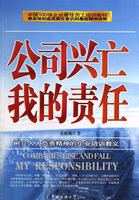Even so racked and tortured, to Jims and Patsy the land was ineffably lovely, the sheep comforting, the late roses in the garden a perfume of some heaven. And somehow they had to drink of it all so deeply they'd never again forget, for that first going away had been a careless one; they had had no idea what it would be like. When they left this time it would be with every moment hoarded to remember and treasure, and with Drogheda roses pressed into their wallets along with a few blades of scarce Drogheda grass. To Fee they were kind and pitying, but to Meggie, Mrs. Smith, Minnie and Cat they were loving, very tender. They had been the real mothers. What delighted Meggie most was the way they loved Dane, played with hum for hours, took him with them for rides, laughed with him, rolled him over and over on the lawn. Justine seemed to frighten them; but then, they were awkward with anyone female whom they didn't know as well as they knew the older women. Besides which, poor Justine was furiously jealous of the way they monopolized Dane's company, for it meant she had no one to play with.
"He's a bonzer little bloke, Meggie," said Jims to Meggie when she came out onto the veranda one day; he was sitting in a cane chair watching Patsy and Dane playing on the lawn.
"Yes, he is a little beauty, isn't he?" She smiled, sitting where she could see her youngest brother. Her eyes were soft with pity; they had been her babies, too. "What's the matter, Jims? Can't you tell me?" His eyes lifted to hers, wretched with some deep pain, but he shook his head as if not even tempted "No, Meggie. It isn't anything I could ever tell a woman."
"What about when all this is over and you marry? Won't you want to tell your wife?"
"Us marry? I don't think so. War takes all that out of a man. We were itching to go, but we're wiser now. If we married we'd have sons, and for what? See them grow up, get pushed off to do what we've done, see what we've seen?"
"Don't, Jims, don't!"
His gaze followed hers, to Dane chuckling in glee because Patsy was holding him upside down.
"Don't ever let him leave Drogheda, Meggie. On Drogheda he can't come to any harm," said Jims.
Archbishop de Bricassart ran down the beautiful high corridor, heedless of the surprised faces turning to watch him; he burst into the Cardinal's room and stopped short. His Eminence was entertaining Monsieur Papee, the Polish government-in-exile's ambassador to the Holy See. "Why, Ralph! What is it?"
"It's happened, Vittorio. Mussolini has been overthrown."
"Dear Jesus! The Holy Father, does he know?"
"I telephoned Castel Gandolfo myself, though radio should have it any minute. A friend at German headquarters phoned me." "I do hope the Holy Father has his bags packed," said Monsieur Papee with a faint, a very faint relish.
"If we disguised him as a Franciscan mendicant he might get out, not otherwise," Archbishop Ralph snapped. "Kesselring has the city sealed tighter than a drum."
"He wouldn't go anyway," said Cardinal Vittorio. Monsieur Papee got up. "I must leave you, Your Eminence. I am the representative of a government which is Germany's enemy. If His Holiness is not safe, nor am 1. There are papers in my rooms I must attend to. Prim and precise, diplomat to his fingertips, he left the two priests alone.
"He was here to intercede for his persecuted people?"
"Yes. Poor man, he cares so much for them."
"And don't we?"
"Of course we do, Ralph! But the situation is more difficult than he knows."
"The truth of the matter is he's not believed."
"Ralph!"
"Well, isn't it the truth? The Holy Father spent his early years in Munich, he fell in love with the Germans and he still loves them, in spite of everything. If proof in the form of those poor wasted bodies was laid out in front of his eyes, he'd say it must be the Russians did it. Not his so-dear Germans, never a people as cultured and civilized as they are!" "Ralph, you are not a member of the Society of Jesus, but you are here only because you have taken a personal oath of allegiance to the Holy Father. You have the hot blood of your Irish and Norman forebears, but I beg of you, be sensible! Since last September we have been only waiting for the axe to fall, praying 11 Duce would remain to shelter us from German reprisal.
Adolf Hitler has a curious streak of contradiction in his personality, for there are two things he knows to be his enemies yet wishes if at all possible to preserve: the British Empire and the Holy Catholic Church of Rome. But when pushed to it, he has done his level best to crush the British Empire. Do you think he would not crush us, too, if we push him to it? One word of denunciation from us as to what is happening in Poland and he will certainly crush us. And what earthly good do you think our denouncing that would achieve, my friend? We have no armies, no soldiers. Reprisal would be immediate, and the Holy Father would be sent to Berlin, which is what he fears. Do you not remember the puppet pope in Avignon all those centuries ago? Do you want our Pope a puppet in Berlin?"
"I'm sorry, Vittorio, I can't see it that way. I say we must denounce Hitler, shout his barbarity from the rooftops! If he has us shot we'll die martyrs, and that would be more effective still."
"You are not usually obtuse, Ralph! He would not have us shot at all. He understands the impact of martyrdom just as well as we do. The Holy Father would be shipped to Berlin, and we would be shipped quietly to Poland. Poland, Ralph, Poland! Do you want to die in Poland of less use than you are now?"
Archbishop Ralph sat down, clenched his hands between his knees, stared rebelliously out the window at the doves soaring, golden in the setting sun, toward their cote. At forty-nine he was thinner than of yore, and was aging as splendidly as he did most things.
"Ralph, we are what we are. Men, but only as a secondary consideration. First we are priests."
"That wasn't how you listed our priorities when I came back from Australia, Vittorio."















